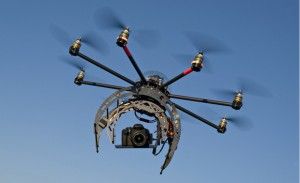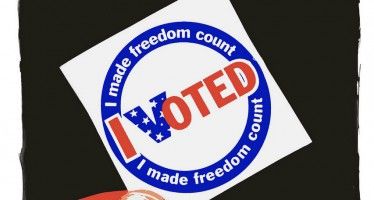Brown vetoes numerous curbs on drone use; approves one
 Despite shooting down a series of bills intended to restrict the private use of drones in public airspace, Gov. Jerry Brown signed a fourth bill that restricted the use of drones around and above private property.
Despite shooting down a series of bills intended to restrict the private use of drones in public airspace, Gov. Jerry Brown signed a fourth bill that restricted the use of drones around and above private property.
“The law expands the state’s definition of invasion of privacy to include sending a drone over private property to make a recording or take photos,” as BBC News reported. It was passed as Assembly Bill 856 and introduced by Assemblyman Ian Calderon, D-Whittier.
Wielding the veto
Just weeks ago, Brown had refused to sign yet another bill that would have extended trespassing law to include similar activity. The bill, Brown warned, “could expose the occasional hobbyist and the FAA-approved commercial user alike to burdensome litigation and new causes of action,” the Los Angeles Times noted.
Three other drone-curbing bills vetoed by Brown “would have prohibited civilians from flying aerial drones over wildfires, schools, prisons and jails,” the Times reported separately. “The governor rejected those and six other bills that would have created new crimes or penalties for misconduct including using bullhooks to handle elephants, allowing explosions in drug labs and removing GPS tracking devices from paroled sex offenders. Brown said in a veto message that there are already laws available to deal with any problems addressed by the bills.”
In his veto statement, Brown complained that the drone bills fell into the pattern of “finding a novel way to characterize and criminalize conduct that is already proscribed. This multiplication and particularization of criminal behavior creates increasing complexity without commensurate benefit.”
Legislative frustration
The author of the three bills, state Sen. Ted Gaines, R-El Dorado, made his dissatisfaction plain in recent remarks to the press. “I think it’s dumb,” Gaines said, according to Southern California Public Radio. “Aren’t we supposed to be protecting the public? If I’m an elected official — he’s the governor, I’m a senator — isn’t one of our key roles that we play in public service to protect the public, and certainly Cal Fire employees?”
The discovery that hobbyists’ drones had interfered with firefighting this summer had fueled the push for criminalizing that activity. “The U.S. Forest Service has repeatedly posted reminders warning people that a collision between a hobbyist drone and the low-flying aircraft and helicopters used to fight wildfire could cause damage to the aircraft and injuries to the pilots and people below,” Ars Technica reported. “Despite the warnings, drone sightings keep happening over wildfires, causing the U.S. Forest Service thousands of dollars in aborted flyovers.”
But the private use of drones raised broader concerns including the safety of commercial aircraft. “A couple years ago, it was 200,000, so it is increasing geometrically, and I think it was a mistake for the governor not to see ahead into the future in terms of the chronic aspect of drone use, in the wrong way, in the state of California,” added Gaines. Along with Assemblyman Mike Gatto, D-Glendale, Gaines had hoped to increase the penalty for interfering with firefighting to $5,000 and up to six months in jail “if the drone interference was ruled reckless and intentional,” Ars noted.
Analysts sympathetic to the legislation suggested that lawmakers were justified in their impatience with the federal government’s pace in crafting drone regulations of its own. “In the state of California, it is already a misdemeanor to ‘engage in disorderly conduct that delays or prevents a fire from being timely extinguished’ or to prevent emergency responders from discharging their duties,” noted Justin Peters in Slate. “Legislators’ attempts to get specific are a function of frustration, both with drone operators whose actions too often defy common sense and with a federal government that is taking its sweet time to come up with comprehensive regulations for an industry that desperately needs them.”
Related Articles
Initiative filing fee hike moves closer to approval
A proposal to make it more expensive to file a ballot measure in California is moving closer to becoming law, worrying both liberal
Demystifying the Prop. 23 battle
SEPT. 8, 2010 By KATY GRIMES Californians are faced with unusual issues every election cycle — this November is no
Wyland Bill Targets the 'Bill Factory'
MAR. 29, 2011 By KATY GRIMES The massive production process of the “bill factory” at the Capitol can be considered



